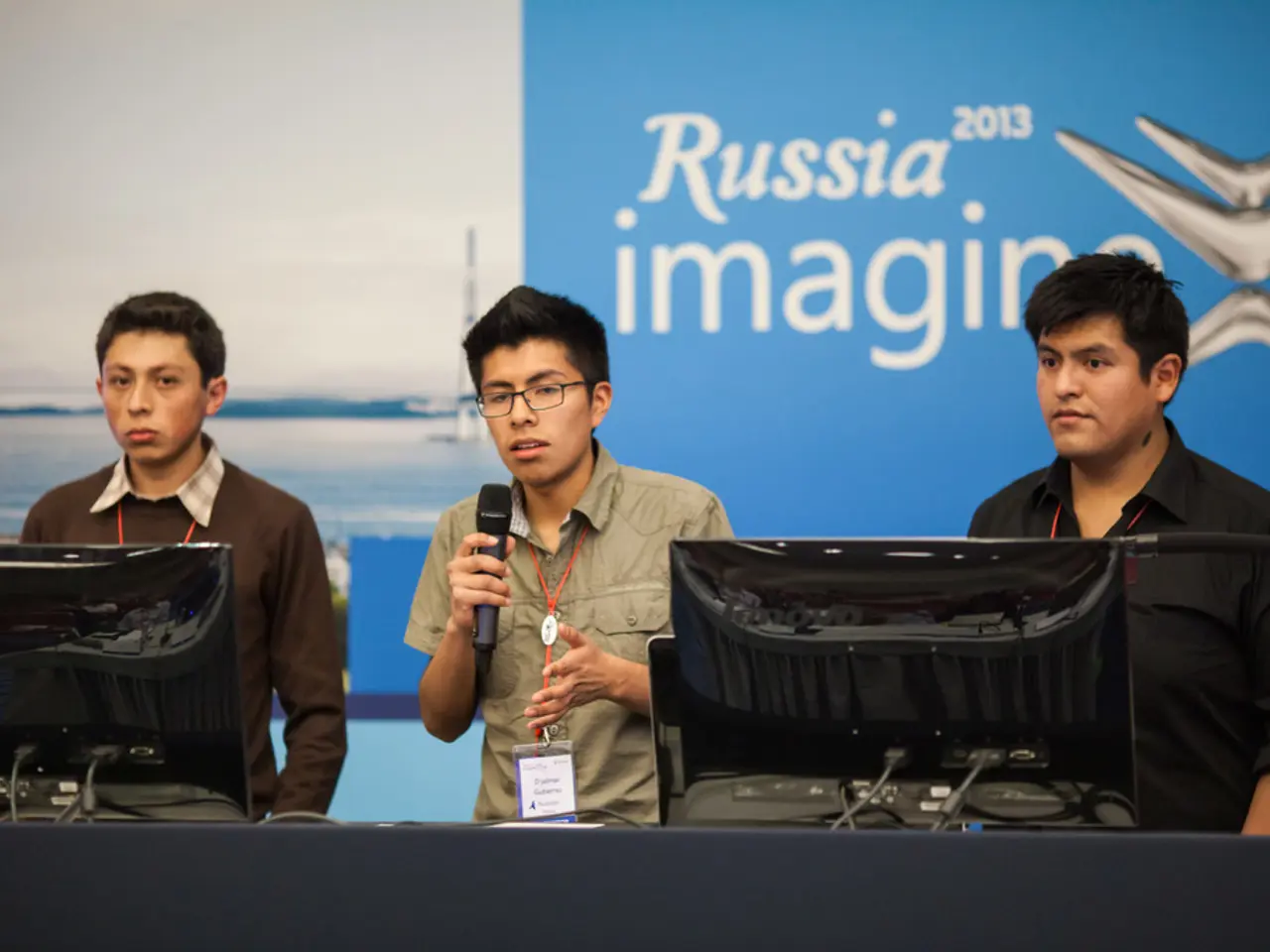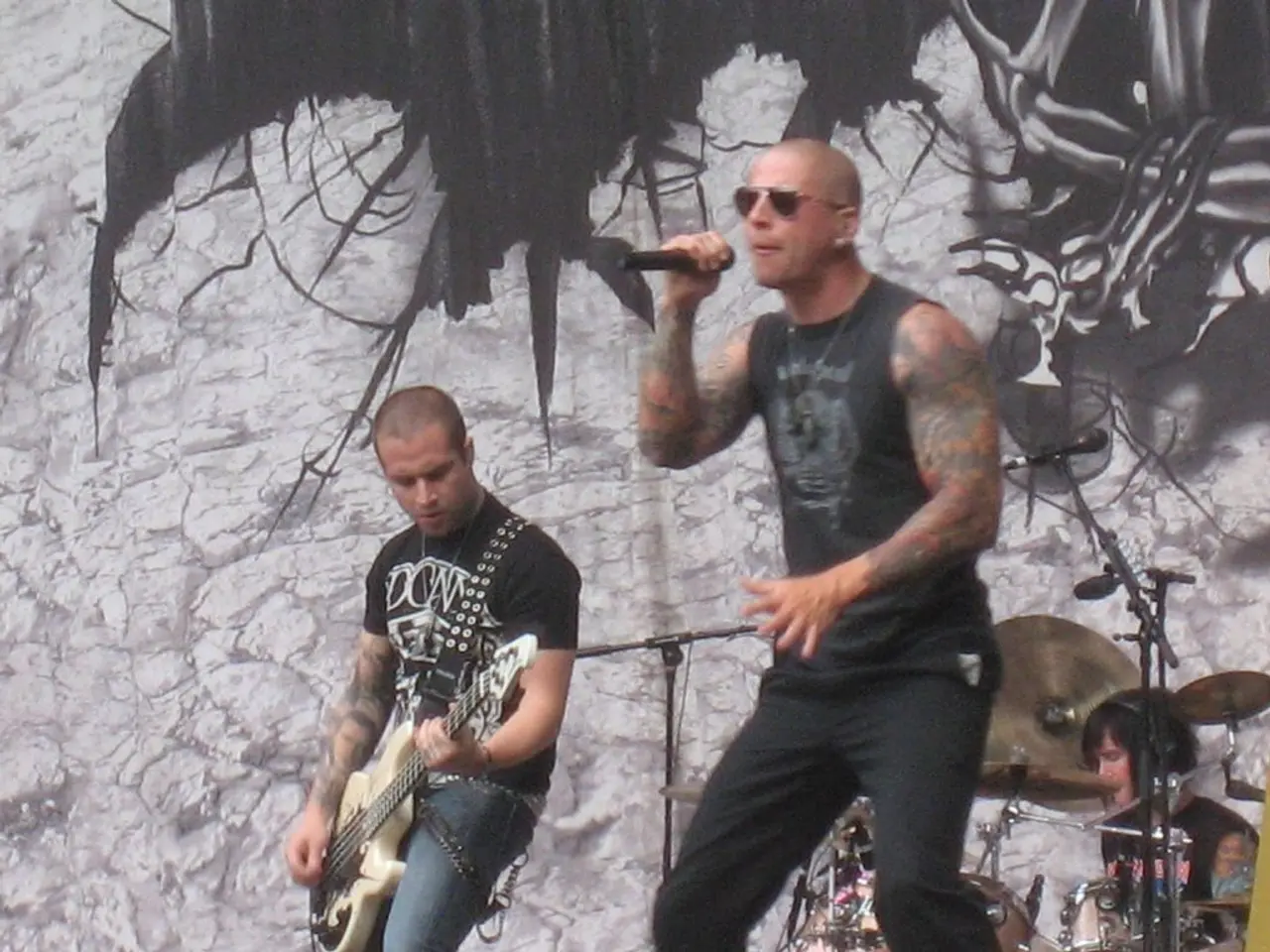Microsoft's shareholders demand scrutiny of company's Israel relations - "Questionable involvement in alleged human rights abuses and international law infringements cast doubt on Microsoft's HRDD efficacy"
In recent times, technology giant Microsoft has found itself under intense scrutiny regarding its human rights due diligence (HRDD) processes, particularly in relation to the use of its artificial intelligence (AI) and cloud products in conflict zones such as Gaza.
### Current Scenario
Over 60 shareholders, representing more than $80 million in Microsoft shares, have filed a resolution demanding Microsoft publish a detailed report assessing the effectiveness of its HRDD processes. The resolution focuses on how well these processes prevent, identify, and address misuse of Microsoft’s AI and cloud products by customers in ways that potentially violate human rights or international humanitarian law, particularly in military contexts.
Microsoft claims to conduct ongoing HRDD in line with UN Guiding Principles on Business and Human Rights (UNGPs), yet it does not fully disclose details about its HRDD processes related to customer end use, nor the effectiveness of risk mitigation actions.
Microsoft has publicly stated, after an internal review and commissioning a third-party firm, that it has found no evidence to date that its Azure and AI technologies have been used to harm people in the Gaza conflict. However, this review has been criticized for lacking transparency, especially about the methods and definition of "harm," as well as the unidentified external firm involved.
### Concerns Raised
Shareholders and activists, including groups like No Azure for Apartheid, which comprises current and former Microsoft employees, have raised serious concerns. They allege that Microsoft’s technology is being used by the Israeli military for surveillance, phone call transcription, and targeting Palestinians in Gaza.
The situation escalated internally and publicly as protests took place during Microsoft events, with employees directly challenging company leadership and accusing the firm of complicity in enabling human rights abuses and even genocide through its contracts and technology deployments.
### Summary
Microsoft faces ongoing shareholder demands and ethical challenges concerning its human rights due diligence related to AI and cloud products, especially regarding their end use in conflict zones like Gaza. While Microsoft maintains compliance with UN principles and conducts internal reviews, critics highlight a profound lack of transparency and possible ineffectiveness of these processes in preventing misuse. Shareholders are pushing for enhanced disclosure and evaluation of Microsoft's risk management practices to ensure that its technologies do not contribute to human rights violations or international crimes.
- Microsoft's shareholders, representing over $80 million in Microsoft shares, have demanded an update on the effectiveness of Microsoft’s HRDD processes, focusing on the prevention, identification, and address of potential human rights violations involving its software, such as Azure and AI technology, in military contexts like Gaza.
- Amidst this scrutiny, Microsoft has stated that an internal review and third-party firm couldn't find any evidence of their Azure and AI technologies causing harm in the Gaza conflict, yet the transparency of this review has been queried, particularly about the methods, definition of "harm," and the unidentified external firm involved.
- Sports and gaming communities are also watching this issue closely, given Microsoft's Windows, Xbox, and software businesses, wondering if their technology, such as gaming PCs, might unwittingly support actions detrimental to human rights in conflict zones such as Gaza.
- Following these concerns, activist groups like No Azure for Apartheid, consisting of current and former Microsoft employees, argue that Microsoft’s technology is being used by the Israeli military for electronic surveillance, phone call transcription, and targeting Palestinians in Gaza, which Microsoft denies.
- As protests took place during Microsoft events, employees directly challenged company leadership, accusing Microsoft of complicity in enabling human rights abuses and even genocide through its contracts and technology deployments, adding more fuel to the ethical demands for Microsoft to further disclose its HRDD practices and risk management strategies, ensuring the avoidance of human rights violations or international crimes with its technologies.




